NCEF is solely run and dependent on dedicated volunteers who want to make a lasting difference in the lives of children. We welcome our new members and look forward to working with them.
- Pragatee Dhakal
- Sabin Gauchan
- Naresh Poudel
- Rosina Poudel
- William Lee
- Sangya Singh
|
Pabitra
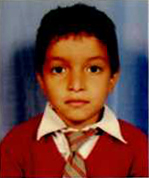
Pabitra in Nepalgunj was thrilled when her teacher told her that she had good grades in exams
|
Melina
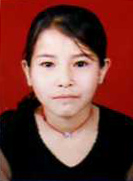
Melina in Nepalgunj thinks "It's great to be studying with friends."
|
Dhanamaya
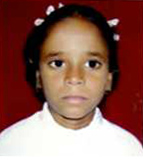
Dhanamaya in Nepalgunj was happy when "my teacher praised me and encouraged me to study well."
|
NIsha
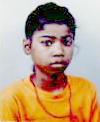
Nisha in Nepalgunj tells us "I got good grades in recent tests. Teachers are happy about my performance."
|
Hastanath

Hastanath in Nepalgunj is glad to be able to answer questions raised in class.
|
Ganga
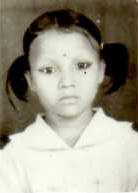
Ganga in Nepalgunj says "Math and Nepali teachers were very happy with my performance."
|
Leave a Comment |
Our last issue featured article on a story of young children in Minnesota who organized a fundraising meal to raise $210 for NCEF’s children. Here are some pictures from the event.
Leave a Comment
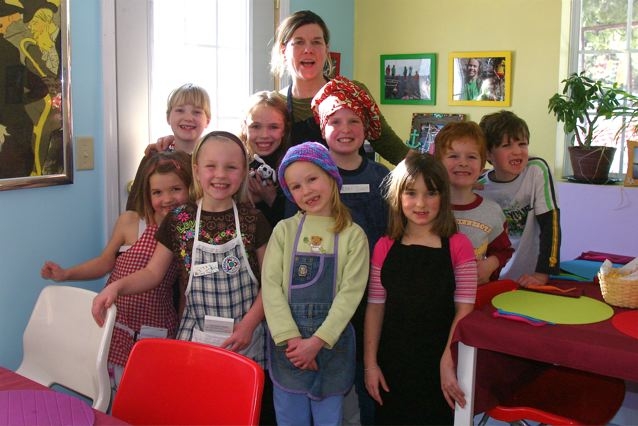
Ms. Leah Thomas (coordinator) with "The Explorer's Club"
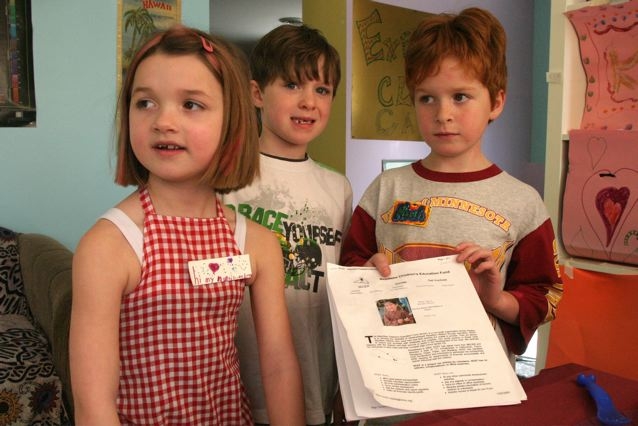
Children with NCEF printouts
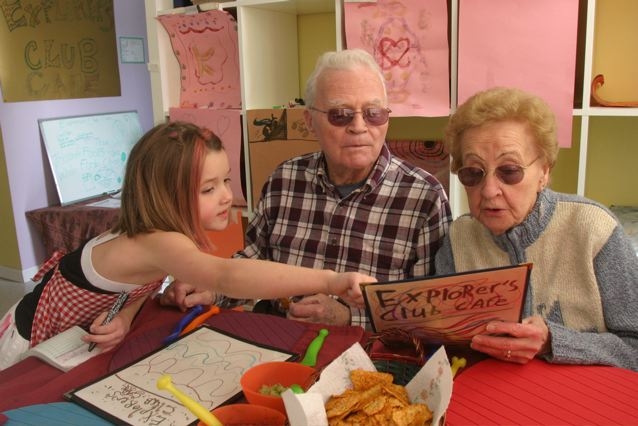
Having a good time with family and friends
|
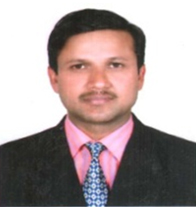
Mr. Dhungana - "Meeting with students in classrooms, reading instant responses from executives of NCEF and obtaining good results from all our funded students, all these wonderful experiences have left an indelible mark inside my heart."
Mr. Bidhur Prasad Dhungana is a dedicated and enthusiastic volunteer of NCEF and a board member of CE (Campaign for Education), a sister organization of NCEF in Nepal. He holds a Master’s degree in Business and International Law from The Kathmandu School of Law in Bhaktapur, and has been a practicing lawyer for the past 15 years. When he is not working, Mr. Dhungana, enjoys reading philosophical books and traveling with his friends. He currently lives with his family in Gathatar, Kathmandu.
Abhushan Gautam, our student volunteer/writer, had an up-close interview with Mr. Dhungana about his experience working with NCEF and its sister organization in Nepal.
EXCERPTS:
Abhushan: What motivated you to volunteer with NCEF and become involved with CE?
Mr. Dhungana: I have indulged myself in different types of social and community-service activities in the past. But, I specifically came to know about NCEF from Dr. Maheshwor Kafle (Chairman of CE), who currently resides in the U.S.
The idea of getting involved with NCEF struck me when I reflected deeply upon the functioning of such a great organization by a few passionate Nepalese students studying in the U.S. I realized that NCEF was a genuine non-profit based organization - one of those very few that one encounters in a country like Nepal - which was being run for the good cause of educating impoverished kids in Nepal. Hence, I felt that volunteering here was something I should do from my side and I was assured that all my efforts would not go futile in this regard.
What has been your role as a volunteer and how has the experience of working with NCEF been?
As a volunteer, I coordinate the documentation of important files and folders related to our activities here. Apart from this, I keep in touch with other regional volunteers and receive reports from them as well.
My experience with NCEF has really been a mesmerizing one. Meeting with students in classrooms, reading instant responses from executives of NCEF and obtaining good results from all our funded students, all these wonderful experiences have left an indelible mark inside my heart. Most importantly, at the end of my work, I am rewarded with an immense feeling of satisfaction as everything here is put to proper use and all the funds are utilized in a transparent manner. Thus, I feel really grateful to the NCEF Board for their excellent system of executing all these tasks.
How do you manage between your busy work-schedule and your involvement in other activities with NCEF?

Are you in yet? Join our cause to receive announcements, view new pictures and videos. Invite your Friends!

Number of Members: 3,897
Donations from Cause: $670 |
Genuinely speaking, my association with NCEF has not seriously hindered my occupation. I usually devote my leisure time during the weekends for most of the administrative tasks. Sometimes, I meet with the volunteers in my own office for important issues. Besides, there are always other ways of communicating, i.e. via phone or the Internet. I usually attend most of the events organized by our volunteers here. But, there are situations when I need to set-apart some of my office hours for important meetings or events. This, however, does not bother me so much because at the end of it, it is all worth it!
What difficulties do you face while communicating with NCEF volunteers in US?
At times, problems arise in the interpretation of data between us and the volunteers based in the U.S. There are times when it becomes really difficult for us to analyze contents sent from the organization based in the U.S. while trying to infer it in a Nepalese context. Many of such problems cannot be eliminated through our normal conversation via phone or the Internet and requires face-to-face interaction. Moreover, untimely power-cuts here in Nepal make it really difficult for us to maintain constant contact with the authorities in the U.S.
What difficulties do you face commonly while interacting with NCEF students and their guardians and volunteers?
Some guardians and parents of the funded students expect more from us than what we can actually provide. They feel that every aspect of the children's needs to be taken care of by the organization. But, we do try to make sure that we provide help to the children if it falls within our capacity and reach.
Occasionally, some volunteers fail to send their reports on time. Sometimes, even if they are sent, either the reports are not well completed or arrives too late. The process of assimilating those materials from their respective locations is an onerous task since NCEF funded students hail from mostly rural parts of Nepal, where transportation means are inaccessible. Also, concerns over their security keeps looming all the time.
Please describe a memorable moment while working for NCEF.
Once two PhD students (Jay and Hem) from the U.S. visited Nepal and they approached me to know more about the funded students of NCEF in Nepal. Later, I took them to the Bishwo Niketan School (a high school in Tripureshwor, Kathmandu) where we had an interaction session with the students there. One of the funded students described all the support that NCEF/CE had been providing for them. After talking to the students, the visitors were really impressed and they congratulated me as well for playing a good role as a volunteer. At that moment, I felt really proud and satisfied with myself and was content with all the contributions that I had made to NCEF up to that point.
What improvements do you think will be beneficial for the children and the proper functioning of NCEF?
Some of the areas that I have mentioned earlier as ‘difficulties’ do require firm attention. This can only be achieved when we sit down together and pen better policies with regards to better mobilization of volunteers, devising better methods for the usage of our resources, and planning out new ideas to generate funds. Receiving feedback from the guardians and teachers, maintaining timely interaction with the students, and organizing get together programs would also be equally beneficial.
Any general comments/suggestions to other people who are willing to help NCEF?
As a law student, I inherited a deep feeling of urgency to help other people who seek justice. In the end, their happiness makes me happier, and their gratification for me makes me a stronger person everyday. It is a similar case when working for a social cause. I prefer to work for the children and old-aged people of Nepal since I believe these two walks of life demand vital attention from our side.
I would encourage others to get involved and contribute something within their capacity to the needy people of the society. In doing so, we can learn more about our community and gain vital insights into our environs. Most importantly, by doing so, we mold ourselves into better individuals and responsible citizens of tomorrow.
Leave a Comment
|
